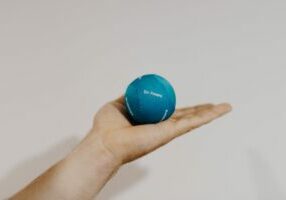 Tis the season to do holiday races!! One great thing about us PNW-ers is that we accept the inevitable rainy weather and soldier on anyway. Five K’s, mud runs, and polar swims abound. If you’re a seasoned vet who competes all year long, you probably have a routine for your pre-, during, and post-race. For those of us holiday warriors jumping in to help raise money for the cause (and hot chocolate), we may not be in tune with the up-to-date race recovery strategies. Or are even aware that we need them.
Tis the season to do holiday races!! One great thing about us PNW-ers is that we accept the inevitable rainy weather and soldier on anyway. Five K’s, mud runs, and polar swims abound. If you’re a seasoned vet who competes all year long, you probably have a routine for your pre-, during, and post-race. For those of us holiday warriors jumping in to help raise money for the cause (and hot chocolate), we may not be in tune with the up-to-date race recovery strategies. Or are even aware that we need them.
That means you! The one who swears they’re NOT a runner, you’re just running this once. Even if you only walk the race, that’s fine, your still a participating body for the cause. But if you don’t usually walk 3.2 miles every week, you may be subject to soreness, aches, and pains, or injury if you don’t recover well after the run. You might not even notice symptoms until a couple of days later. The good news is that this can all be prevented with just a little work on race day.
Pre-Race:
- Warm up! It’s easy to think you can just bounce out of bed and get running, that’s a rookie mistake. Especially if you’re running first thing in the morning, you need to get some juices flowing. Park far away and walk the 3-5 blocks to the race, that’s an easy way to warm up without wasting more time. Other options include:
- 15 minutes on a stationary bike
- 2 minutes of burpees and squats/lunges
- A short 10-minute jog at a slow pace
- Fuel before. Eat a good breakfast, whether you’re running or walking. If running, make sure not to eat something that will upset your stomach. If walking, just something hearty that won’t weigh you down. Oatmeal, chia seeds, fruit, milk (cow or other), eggs, and yogurt are all good choices.
- Hydrate. Start 2 days before, you won’t need to take as many water breaks (or pee breaks) if you hydrate the days before instead of during.
- Get some electrolytes afterward. Especially if you’re walking, it’s better to replace those electrolytes after the race instead of during. Less than an hour of running doesn’t require fuel during the race (as long as you fueled and hydrated before).
Post-Race:
- Stretch! It’s best done after the race. The basics are good here: quads, hamstrings, groin, calves, low back. This will decrease any soreness later and release any excess tension you’ve built up over the last 3+ miles.
- Epsom salt bath. Its old school comes to new school again. The magnesium helps our muscles recover and reboots our system. Feeling run down or sick? A hot Epsom salt bath is just what the doctor ordered.
- Eat well. Get a good recovery meal. Again, even if you’re walking. Good nutrients with veggies, protein, and quality carbs. A well-rounded meal is the best way to go.
- Work out again soon. The best exercise recovery is the opposite type. That would mean doing some easy resistance training. Simple free weights or body weight movements will work: push ups, sit ups, squats, lunges, etc.
Exercises You Can Do at Home after a Visit to the Chiropractic Clinic
Stay active at home with exercises from ‘Exercises You Can Do at Home after a Visit to the Chiropractic Clinic’.
Read MoreAthletic Therapy: A Vital Component in Sports Rehabilitation
Discover the importance of athletic therapy in sports rehabilitation in our insightful blog on ‘Athletic Therapy: A Vital Component in Sports Rehabilitation’.
Read MoreA Comprehensive Guide to Spinal Therapy for Athletes
Discover the benefits of spinal therapy for athletes in our comprehensive guide ‘A Comprehensive Guide to Spinal Therapy for Athletes’.
Read MoreHow Chiropractic Techniques are Advancing in Pain and Injury Treatment
Discover the latest advancements in pain and injury treatment through innovative chiropractic techniques.
Read MoreSpine Rehabilitation: How Corrective Exercises Can Help with Posture and Pain Relief
Discover how corrective exercises in spine rehabilitation relieve pain and improve posture – read more now!
Read MoreCorrective Exercises: Your Secret Weapon Against Chronic Pain
Combat chronic pain with corrective exercises featured in ‘Corrective Exercises: Your Secret Weapon Against Chronic Pain’.
Read More




